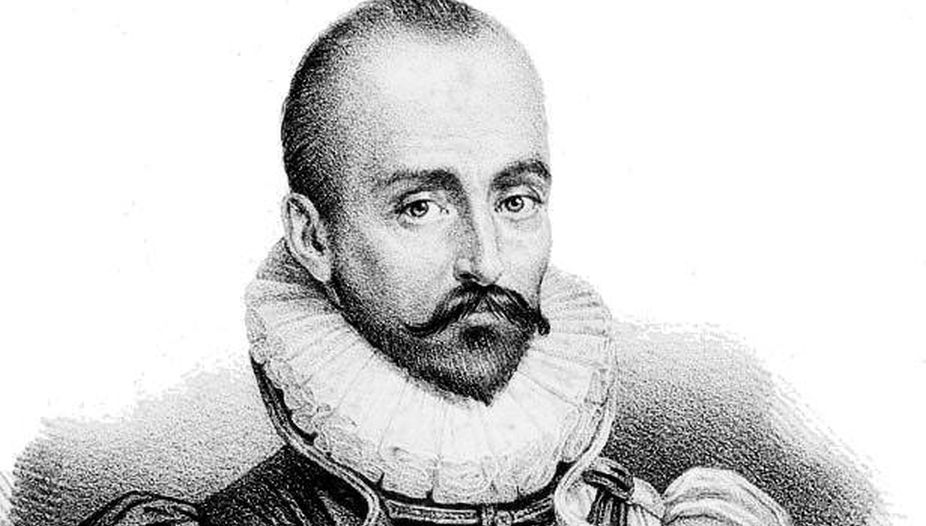Ananya Panday’s childhood poetry delights fans
Bollywood star Ananya Panday charms fans with a nostalgic childhood video reciting a cute poem on Instagram.

Michel de Montaigne (Photo: Facebook)
Writing essays helps in stimulating the intelligence and therefore leads to intellectual development. Essays are essentially a prose composition with a focused subject. We must accept that such writing is vital for both learning in universities and for the professional world.
One’s knowledge is expanded because inputs for essays entail referencing; this enables a writer to pursue the primary goal, which is to examine, speculate, analyse or interpret a subject. Michel de Montaigne, (1533 – 1592), was a French writer, and an eminent philosopher of the French Renaissance. He was renowned for popularising essays, which he wrote in French.
His book The Complete Essays, is amongst the famous 100 books of all time. His essays were translated by MA Screech, Honorary Fellow, Wolfson College, Oxford.
Advertisement
Screech is a world renowned Renaissance scholar. He was inducted into the French Legion of Honour, for his translating Montaigne’s essays. His translations are described “as the most definitive English Montaigne.”
Montaigne’s essays were divided into three books and each book had many chapters with numerous essays. He discovered that short chapters did not enable him to write all he wished to. By increasing the number of chapters he realised it was possible to write on more diverse topics and thus enjoyed the freedom of an imposed order.
To read the writing of such a learned personality is indeed an enlightening experience. In fact, the essay selected by the writer of this narrative, is on the subject of “learning” itself, which Montaigne titled “On Schoolmaster’s Learning”.
When Montaigne was a schoolboy he was horrified to see schoolmasters being a subject of ridicule in Italian and French comedies. He tried to defend them to the common man and to also extol schoolmasters to the few of rare judgment.
Alas! Montaigne believed that the “most civilised” of people held schoolmasters in the greatest of contempt. He quoted Joachim du Bellay, (1522 – 1560), a French poet and critic, who wrote, “But most of all I loathe schoolmasterish erudition.”
As Montaigne grew up, he realised that the greatest teachers were not necessarily the wisest. He questioned this thought and wondered how a person enriched with so much knowledge could not be more“alert and alive?” Montaigne writes, “That still keeps me wondering.” Aristotle observed some important people not “prudent” in their work because they did not concern themselves enough with more useful matters.
Montaigne however, states that there is no excuse for these people; since they appear satisfied with what they pursue, it proves that they are neither wise nor prudent.
Not withstanding the explanation of people avoiding useful matters, Montaigne asserts that the evil arises from such persons tackling the sciences in the wrong manner, reflecting the way they have been taught; so neither masters nor pupils are competent despite them knowing more. Montaigne articulates a profound thought, that, in truth, the care and fees of parents aim at furnishing our heads with knowledge — nobody talks of judgment or virtue.
Questions erupt after the child’s education: Has he learnt Greek or Latin? Can he write poetry or prose? What matters most, is the question we put across last: Has he become better and wiser? Our analysis must focus not on what was understood most, but who has understood best. This grand philosopher writes that pupils are taught merely to fill their memory, leaving comprehension and the sense of right and wrong empty. He says that schoolmasters go “foraging for learning to their books” to then “scatter” what they have learnt.
He truthfully confides that he himself “forages” through his books for sayings that please him. The sayings he likes are written into his narratives; so we only know what we know now. Students he advocates are not fed by what they learn because the learning is passed with only one end in view-to show off the learning by entertaining others with it. Cicero is quoted, “We do not need talk but helmsmanship.” We know what to say, ‘This is what Cicero said’ but Montaigne highlights Aristotle’s words with these thoughts, who asks: ‘But what have we got to say? What judgments do we make? A parrot could talk as well we do.”
The value of wisdom is to enjoy learning its precepts. Montaigne cited Dionysius, a judge at the court of Areopagus, in Athens, who lived in the first century AD; Dionysius laughed at professors of grammar who did research into the bad qualities of Ulysses yet knew nothing of their own; at orators whose studies led to talking about justice, not to being just. He illustrates these thoughts by juxtaposing professors, whom Dionysius laughed at, with a peasant or cobbler, who go about their business talking only of what they know, whereas those professors displayed knowledge which was in the “surface of their brains.”
They knew the theories of many laws but could they put these theories into practice? Montaigne doubted it. He admired Adrian Turnebus, (1512 – 1565), a French classical scholar and renowned professor. Montaigne asserted that Turnebus was “the greatest man for a millennium.”
Both these remarkable intellectuals feared that pupils in France “are taught for the schoolroom not for life.”
Advertisement